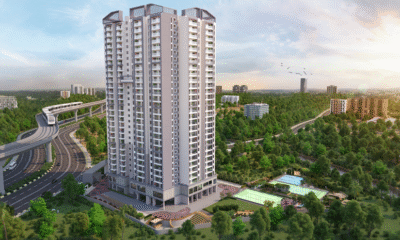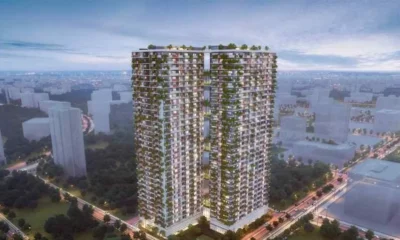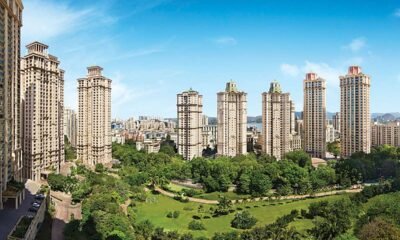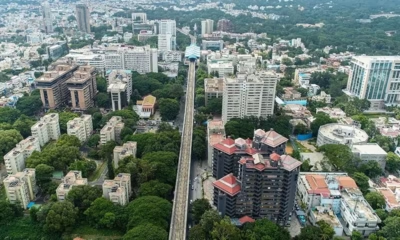News
Maharashtra and Mumbai: Pioneering Sustainable Built Environment Leadership in India
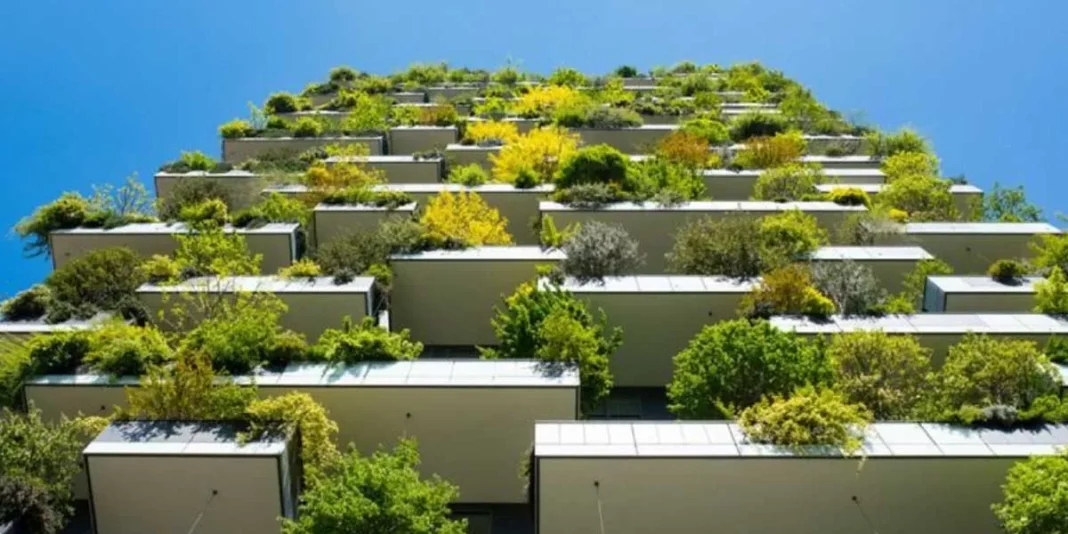
Mumbai, November 18, 2025: Maharashtra, led by its vibrant cities Mumbai, Pune, Nagpur, Nashik, Chhatrapati Sambhaji Nagar (Aurangabad), and Navi Mumbai, is setting new benchmarks in sustainable urban development and green building adoption in India. This leadership is driven by the state government’s progressive policies, attractive incentives, and a robust partnership with the CII Indian Green Building Council (IGBC), India’s foremost authority on green building certification and the net zero movement.
Policy Framework Drives Green Growth
Maharashtra’s Urban Development Department has introduced transformative policy measures to incentivize green building projects across the state. The government offers additional Floor Area Ratio (FAR) incentives of 3 per cent, 5 per cent, and 7 per cent for IGBC-rated Silver, Gold, and Platinum buildings, respectively. Pune Municipal Corporation (PMC) and Pune Metropolitan Region Development Authority (PMRDA) have adopted similar provisions for promoting sustainable construction. The Public Works Department (PWD) mandates all new government buildings and renovations to comply with IGBC’s GREEN Building Rating systems, reinforcing the state’s commitment to sustainable infrastructure.
Further, updates to the Urban Development Control and Promotion Regulations (UDCPR) 2020 have mandated that integrated township projects achieve at least a silver rating from IGBC, ensuring that large-scale urban developments embody eco-friendly and energy-efficient design principles.
The Maharashtra government has also been progressive in drafting the Energy Conservation Building Code (ECBC) Rules 2025, reinforcing standardized energy performance norms for new commercial buildings and aligning these with India’s national energy efficiency and net zero targets.
Maharashtra’s Green Building Impact and Leadership
Maharashtra is home to six of India’s most active IGBC chapters, recording remarkable milestones:
- The Mumbai chapter leads with over 1,700 registered projects, covering more than 1,800 million square feet of built-up green building area, including over 550 certified green building projects and 45 net zero building projects.
- Pune has registered over 1,300 projects with a built-up area exceeding 2,000 million square feet, with 400 certified green building projects and 20 net zero building projects.
- Chapters in Nagpur, Nashik, Chhatrapati Sambhaji Nagar (Aurangabad), and Navi Mumbai contribute steadily to the state’s green building footprint, showcasing wide geographical engagement.
Mumbai stands out as a leader in commercial, net zero, and transit infrastructure projects, with Pune excelling in residential, industrial, and logistics sectors. Nagpur and Nashik follow, underscoring Maharashtra’s role as a diversified hub for sustainable built environment practices.
These efforts have culminated in Maharashtra topping the list of Indian states in terms of registered green building footprint, a key contributor to India’s position as the world’s second-largest green building market. The cumulative effect is measurable—substantia reductions in carbon emissions, energy usage, and water consumption—benefiting not only the environment but also enhancing the health and well-being of residents.
Some of the state’s exemplary achievements under IGBC ratings include:
- Infosys Pune Campus: One of India’s pioneering Net Zero Energy campuses integrating advanced renewable energy systems.
- CIDCO Bhavan, Navi Mumbai: A model green civic headquarters demonstrating government leadership in sustainability.
- Tata Motors, Pune, and Nashik: Industrial sites adopting IGBC Factory ratings, advancing energy and material efficiency.
- Mumbai International Airport
- Navi Mumbai Municipal Corporation Head Office
- Reserve Bank of India, Fort
- TATA Bombay House
- Most of the financial and IT office spaces in BKC
CII Indian Green Building Council: Driving Maharashtra’s Green Transformation
CII Indian Green Building Council (IGBC) has been an indispensable partner to the Government of Maharashtra in orchestrating the transition to sustainable urban landscapes. IGBC’s comprehensive suite of 32 locally adapted green and net zero rating systems ensures buildings across sectors—residential, commercial, industrial, data centers, and transit—adhere to world-class sustainability benchmarks tailored for India’s climatic and socio-economic conditions.
IGBC brings a holistic approach emphasizing energy efficiency, water conservation, indoor environmental quality, and lifecycle carbon impact assessments. To boost adoption, IGBC has developed flexible frameworks such as the IGBC Green Affordable Housing and NEST programs targeting affordable housing segments and smaller contractors.

M Anand, Deputy Executive Director, CII Indian Green Building Council, shared his thoughts on Maharashtra’s role. “Maharashtra’s exemplary commitment to sustainable urban development demonstrates visionary governance and strategic partnerships. Our collaboration with the government has accelerated green building adoption and net zero initiatives, proving that sustainability and economic growth can go hand in hand. Maharashtra is setting a precedent for other states while shaping the future of India’s built environment—making it resilient, resource-efficient, and inclusive.”
Pathway to a Sustainable Future
Maharashtra’s green building policies and strategic incentives are vital components of India’s broader national agenda to achieve net zero carbon emissions by 2070. These coordinated efforts pave the way for scalable solutions that foster resilient infrastructure and healthier urban habitats. IGBC’s advocacy and capacity-building initiatives ensure that these policy mandates translate into real-world outcomes, empowering architects, builders, developers, and policymakers alike.
With ongoing urbanization, Maharashtra’s blend of government foresight, IGBC’s technical leadership, and industry engagement exemplifies a replicable model of sustainable growth. The state’s accelerated progress in green building adoption underscores the importance of systemic policy support combined with innovative certification mechanisms to mainstream sustainable construction practices.

 News2 weeks ago
News2 weeks agoDN Group Sets National Expansion and IPO Roadmap at DN DAY 2025

 News3 weeks ago
News3 weeks agoGulshan Group Partners with Taj to Redefine Branded Living in Noida

 News2 weeks ago
News2 weeks agoBPTP Appoints Vineet Nanda as Chief Business Officer

 News3 weeks ago
News3 weeks agoDelhi–NCR Malls Roll Out Festive Christmas Celebrations with Lights, Events & Family Activities

 News6 days ago
News6 days agoIndian Real Estate in 2025: From Roller-Coaster Rides to Rock-Solid Foundations

 News2 weeks ago
News2 weeks agoEmbassy REIT Closes ₹530 Cr Selloff at Embassy Manyata in Bengaluru to EAAA Alternatives’ Real Assets Business

 News4 days ago
News4 days agoDanube Group’s Rizwan Sajan to Host Bigg Boss 19 Contestants in Dubai on January 6–7

 News2 weeks ago
News2 weeks ago2025 Set the Base: What India’s Real Estate Momentum Signals for 2026












